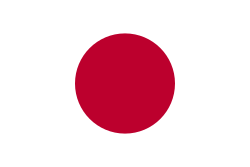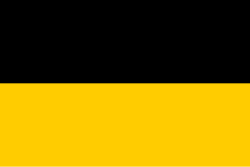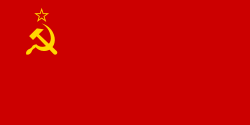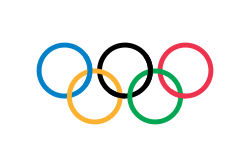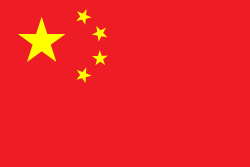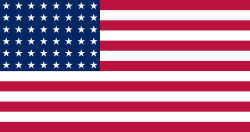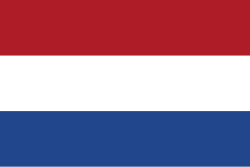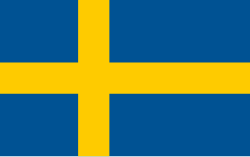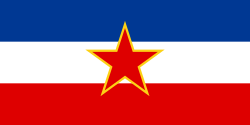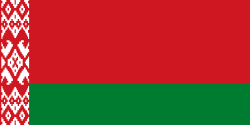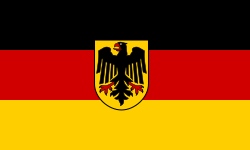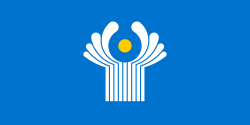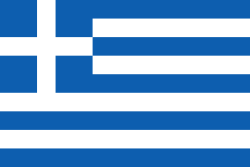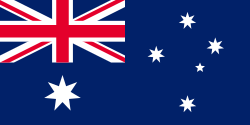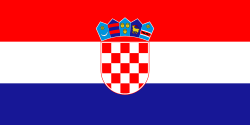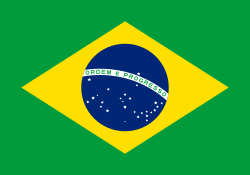Daiki Hašimoto
| Daiki Hašimoto | |
|---|---|
(c) スポーツTOKYOインフォメーション, CC BY 3.0 | |
| Osobní informace | |
| Datum narození | 7. srpna 2001 (23 let) |
| Místo narození | Narita, Japonsko |
| Občanství | |
| Výška | 166 cm |
| Hmotnost | 57 kg |
| Sportovní informace | |
| Sport | sportovní gymnastika |
| Účast na LOH | 2020, 2024 |
| Některá data mohou pocházet z datové položky. | |
Daiki Hašimoto (japonsky 橋本 大輝; * 7. srpna 2001) je japonský sportovní gymnasta, trojnásobný olympijský vítěz a čtyřnásobný mistr světa.
Na mistrovstvích světa získal v letech 2019 až 2023 deset medailí, čtyři zlaté, pět stříbrných a jednu bronzovou.[1]
S gymnastikou začal v šesti letech po vzoru svých dvou starších bratrů. Jeho sportovním vzorem je krajan Kóhei Učimura.[2]
Odkazy
Reference
- ↑ [兄と2人の恩師は知る]橋本大輝「成長曲線は廃校体育館から」(矢内由美子). Number Web - ナンバー [online]. [cit. 2024-08-01]. Dostupné online. (japonsky)
- ↑ HASHIMOTO Daiki - FIG Athlete Profile. www.gymnastics.sport [online]. [cit. 2024-08-01]. Dostupné online.
Externí odkazy
 Obrázky, zvuky či videa k tématu Daiki Hašimoto na Wikimedia Commons
Obrázky, zvuky či videa k tématu Daiki Hašimoto na Wikimedia Commons
- Daiki Hašimoto v databázi Olympedia (anglicky)
| Přehled medailí | ||
|---|---|---|
| zlato | LOH 2020 | víceboj |
| zlato | LOH 2020 | hrazda |
| zlato | LOH 2024 | družstva |
| stříbro | LOH 2020 | družstva |
| Mistrovství světa ve sportovní gymnastice | ||
| zlato | MS 2022 | víceboj |
| zlato | MS 2023 | družstva |
| zlato | MS 2023 | víceboj |
| zlato | MS 2023 | hrazda |
| stříbro | MS 2021 | víceboj |
| stříbro | MS 2021 | hrazda |
| stříbro | MS 2022 | družstva |
| stříbro | MS 2022 | prostná |
| stříbro | MS 2022 | hrazda |
| bronz | MS 2019 | družstva |
Média použitá na této stránce
Olympic Rings without "rims" (gaps between the rings), As used, eg. in the logos of the 2008 and 2016 Olympics. The colour scheme applied here was specified in 2023 guidelines.
Olympic Rings without "rims" (gaps between the rings), As used, eg. in the logos of the 2008 and 2016 Olympics. The colour scheme applied here was specified in 2023 guidelines.
House colours of the House of Habsburg
Autor: F l a n k e r, Licence: CC BY-SA 2.5
Flag of the Kingdom of Sardinia (1851-1861) and of the Kingdom of Italy (1861-1946). Use: Civil flag and ensign. In a governmental or a military context, the crowned version (see Crowned version) was always used (as State flag and naval ensign).
Autor: F l a n k e r, Licence: CC BY-SA 2.5
Flag of the Kingdom of Sardinia (1851-1861) and of the Kingdom of Italy (1861-1946). Use: Civil flag and ensign. In a governmental or a military context, the crowned version (see Crowned version) was always used (as State flag and naval ensign).
National flag and merchant ensign of Germany from 1933 to 1935.
National flag and merchant ensign of Germany from 1933 to 1935.
Finská vlajka
this is the flag of the Soviet Union in 1936. It was later replaced by File:Flag of the Soviet Union (1955-1980).svg.
(c) I, Cmapm, CC BY-SA 3.0
The flag of the Soviet Union (1955-1991) using a darker shade of red.
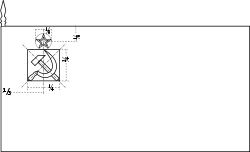
(c) I, Cmapm, CC BY-SA 3.0
The flag of the Soviet Union (1955-1991) using a darker shade of red.

Variant version of a flag of Japan, used between January 27, 1870 and August 13, 1999 (aspect ratio 7:10).
Olympijská vlajka
Flag of the Germans(1866-1871)
Flag of the Germans(1866-1871)
US Flag with 45 stars. In use 4 July 1896–3 July 1908. Created by jacobolus using Adobe Illustrator, and released into the public domain. This flag was used during the Spanish-American War.
US Flag with 45 stars. In use 4 July 1896–3 July 1908. Created by jacobolus using Adobe Illustrator, and released into the public domain. This flag was used during the Spanish-American War.
US Flag with 48 stars. In use for 47 years from July 4, 1912, to July 3, 1959.
Autor: Scroch, Licence: CC BY-SA 3.0
Flag of Bulgaria (1971-1990). Flag of Bulgaria with Bulgarian coat from 1971.
Autor: Scroch, Licence: CC BY-SA 3.0
Flag of Bulgaria (1971-1990). Flag of Bulgaria with Bulgarian coat from 1971.
Russian Olympic Committee flag used in 2020 and 2022, for the Olympics
Vlajka České republiky. Podoba státní vlajky České republiky je definována zákonem České národní rady č. 3/1993 Sb., o státních symbolech České republiky, přijatým 17. prosince 1992 a který nabyl účinnosti 1. ledna 1993, kdy rozdělením České a Slovenské Federativní republiky vznikla samostatná Česká republika. Vlajka je popsána v § 4 takto: „Státní vlajka České republiky se skládá z horního pruhu bílého a dolního pruhu červeného, mezi něž je vsunut žerďový modrý klín do poloviny délky vlajky. Poměr šířky k její délce je 2 : 3.“
Flag of the Socialist Federal Republic of Yugoslavia (1946-1992).
The design (blazon) is defined in Article 4 of the Constitution for the Republic of Yugoslavia (1946). [1]
Bundesdienstflagge (Flag of the federal authorities of Germany). Under German law, federal states, municipalities, institutions or private persons are not allowed to use this flag.
Flag of Australia, when congruence with this colour chart is required (i.e. when a "less bright" version is needed).
See Flag of Australia.svg for main file information.Při zobrazení tohoto souboru lze snadno přidat orámování
Všeslovanská vlajka shválena na všeslovanské konvenci v Praze v roku 1848

